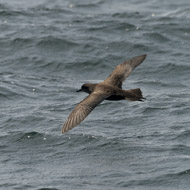Seabird chicks ‘drowning in plastic’

The seabirds are not able to distinguish between plastic and non-plastic items.
Seabirds on the remote Lord Howe Island are starving to death because their stomachs are so full of plastic, documentary filmmakers have revealed.
The documentary, ‘Drowning in Plastic’, is being produced by the BBC as part of its wider Plastics Watch initiative. It features a team of marine biologists on the island working to save the birds.
The crew filmed the biologists with hundreds of chicks, using tubes to flush their stomach with seawater to make them regurgitate the plastic.
Lord Howe Island can be found 600 kilometres off the east coast of Australia. Chicks stay in their burrow, while their parents go diving for squid and small fish.
However, the seabirds are not able to distinguish between plastic and non-plastic items, so they eat the plastic and unknowingly feed it to their chicks. This means that the birds emerge from their burrows with stomachs full of plastic and insufficient nutrition to forage for themselves.
The marine biologists have been moving in to help when the chicks come out of their burrows. Series presenter Liz Bonnin described the rescue as ‘one of the hardest things she had witnessed in her career’.
It was shocking to see how much would come out of one chick," she told BBC News. "We saw, I think 90 pieces come out of one of the chicks on the second night.
"But the scientists were telling us they sometimes pull out 200 or 250 pieces of plastic out of dead birds or from the regurgitation. "It's obscene when you think about it."



 HMRC has invited feedback to its communications regarding the employment status of locum vets and vet nurses.
HMRC has invited feedback to its communications regarding the employment status of locum vets and vet nurses.